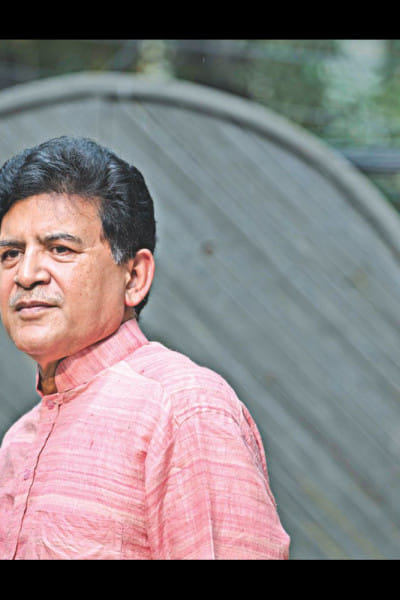Prioritising effective social safety net projects

The government has increased allocation and expanded the coverage of a number of social safety projects. How do you view the change?
That's one way of looking at it. What has increased, actually, is the number. The finance minister has talked about a handful of projects such as old-age and widow allowance. The number of beneficiaries in these projects has been increased, but compared to the previous budget, as a percentage of the total budget, the allocation in Social Security and Welfare programme, under which the aforesaid projects are operated, has in fact decreased.
The allocation in the social safety net programmes constituted 6.7 percent of the budget last year, but this year this has been reduced to less than 6.4 percent.
According to a recent report by Centre for Policy Dialogue, the purview of these programmes in countries like Sri Lanka, Vietnam and Philippines is wider than ours. How do you explain this?
Social safety net programmes should, of course, be prioritised, but we have to see whether the funds are allocated in effective projects. For example, we have long flagged a project, namely the Ekti Bari Ekti Khamar project. Apparently, it's one of the government's favourite projects, but its effectiveness has not been evaluated properly. Its effectiveness is open to question.
I would characterise the whole affair by three points. First, the absolute number in terms of funds and beneficiaries has been increased. Second, the relative share of funds and beneficiaries has decreased in comparison to the previous year. Third, we need to increase funds and coverage of these projects, but we have to do so in effective projects. If we increase funds only for political supporters, it will not work.
There have been allegations that beneficiaries in these projects are at times selected through dubious means. Do you think this issue has been addressed by the government?
At Power and Participation Research Centre (PPRC), we carried out a study covering ten large-scale social safety net projects a few years ago in order to find out the share of fraudulent beneficiaries, and found their share to be hovering around 16-20 percent. However, this is an average percentage; some projects have a disproportionately high number of such fraudulent beneficiaries.
I would say the government has also brought some changes. For example, Test Relief (TR) and Kabikha (food for work) projects were once marred by rampant corruption. To address this problem, as much as 50 percent of funds allocated to TR and Kabikha projects have been shifted to solar power projects, where the scope of corruption is relatively smaller. So, there indeed are allegations, but there are also some efforts to address them.
The government could increase funds for those projects which are proving effective in terms of achieving their objectives. For example, we have long recommended increasing the stipend of primary school students, but the recommendation has largely been ignored. The stipend has been the same since 2004, but if the government increased the stipend, it would have a positive impact, for example, in reducing the number of dropouts.
In his budget speech, the finance minister has outlined what he called a universal pension scheme which also seeks to include the private sector. Do you think the idea is feasible?
For the time being, we have to see this as merely a good idea. In our country, the informal sector constitutes as much as 87 percent of the total employment. So the challenge to launching a universal pension scheme in the informal sector is almost insurmountable. What's more, there's little indication that the policymakers fathomed the magnitude of the task before proposing such an idea.
So, do you think the scheme could be implemented in the formal private sector?
It may be feasible in that case. In the end, however, it seems to me that the government is prioritising the formal public sector only. In fact, a large chunk of the funds allocated to the Social Safety and Welfare programme is spent in pension payment to public service holders. If we deduct this from the overall programme's allocation, then the actual share decreases further.
The idea of the universal pension scheme is new, but it's just a good idea. With our bureaucratic inefficiency, it's highly unlikely that we would be able to make headway in this regard in the near future.
Some observers have dubbed the budget as being a populist one in light of the upcoming general elections. Do you see any connection between the increased funding for social safety net projects and the upcoming elections?
Yes, there is such an aspect, but what has been increased is really negligible in comparison to our needs. We still have 39 million people living below the poverty line, so the share of the poor population covered by these projects is really tiny. It's highly unlikely that this will have a huge favourable impact for the government in the upcoming elections. What we should focus on, in contrast, is the fact that the share of the allocation in these programmes has been reduced compared to the last year.









Comments